.jpg) by Robert Lopresti
by Robert Lopresti
Now comes that joyous season again when I reveal the best stories of the year as chosen by me. This is only a slightly smaller jury than the one that which decides the Golden Globe Awards, by the way.
2014 marks
sixth year
at the task, and I am sorry to say that for the second year in a row my
total of favorites dropped by one, this time to fourteen. Either you
writers are slipping or I am getting increasingly curmudgeonly in my old
age. I suspect the latter.
But let's talk about more cheerful numbers.
Ellery Queen is the bigger winner this time with six stories.
Alfred Hitchcock had three. No other institution scored more than once, unless you count SleuthSayers: three of the fourteen are by current or former members of our little clan. That's either blatant nepotism or a sign of our high quality. Again, I suspect the latter.
Ten authors were male, four female. One winner is a first story.
Two
stories are funny. Four are historical. I tried categorizing by main
character and gave up; too many of these people are bad guys
and victims.
The lucky winners may collect their trophies in the green room.
Carr, Dara. "When I'm Famous," in Ellery Queen's Mystery Magazine, June 2014.
The best first story I have read in some time. Williamsburg, Brooklyn, among the hipsters. Our narrator, Mindy, tells us she is a visual
person. She has a "make-believe boyfriend," Marcus, who phones her late
at night for "booty calls" and she always goes over.
One
might diagnose low self-esteem. Here's another example. When Mindy
spots a beautiful woman at a party, a "wallpaper artist," she writes:
...Brooklyn
royalty and she knows it, the men twitching like they've been tased,
the female viewers emitting a soft electric hum, brains working hard,
calculating the age they were when they could have last worn shorts that
length in public, let alone to a party; beaches don't count.
Age seven would be my answer.
 Dean, David. "Murder Town," in Ellery Queen's Mystery Magazine, February 2014.
Dean, David. "Murder Town," in Ellery Queen's Mystery Magazine, February 2014.
My fellow
SleuthSayer David Dean makes his thrid appearance on this list, with a fine story in the
"Most Dangerous Game" variety.
Terry Holliday is in a Mexican prison for crimes he committed, and some
he didn't. His is not what you would call a model prisoner either.
"'Of
course, you realize that should you choose to stay with us here, you
will surely die," the commandante offered smoothly. He didn't appear to
be particularly troubled by the possibility.
Holliday
is presented with a chance to get away from the guards and fellow
prisoners who want him dead. It seems a group of wealthy
philanthropists are running a parole program for certain prisoners. Ah,
but we already know that there is a catch. The program sends him to
Murder Town.
Giolito, Malin Persson. "Day and Night My Keeper Be," in A Darker Shade of Sweden, edited by John-Henri Holmberg, Grove-Atlantic, 2014.
After a long December day, single mother Petra is at the end of
her rope, so she decides to take her children to the Christmas market.
And - boom - her four-year-old daughter disappears.
She presses a few buttons, shakes it, but it's pointless. Her
daughter is gone and the phone won't ring and fear has to duck because
now terror runs up her back, with sharp talons and pointed teeth.
This story takes unusual twists and ends with a set of plaintive questions. Well worth reading.
 Guillebeau, Michael. "Male Leary Comes Home," in The Anthology of Cozy Noir, edited by Andrew MacRae, Dark House Books, 2014.
Guillebeau, Michael. "Male Leary Comes Home," in The Anthology of Cozy Noir, edited by Andrew MacRae, Dark House Books, 2014.
I have a story of my own in this anthology.
The Leary guy in the title was baptized Robert T.
His birth certificate calls him Male. His friends call him Mister.
Under
any name, he was in the Navy during the War and then joined the
merchant marine. When the story opens he's back from sea and learns
that his girlfriend's father is having trouble with a gang boss.
Leary and a friendly bar owner get involved and - something violent and nasty happens.
Helms, Richard. "Busting Red Heads," in Ellery Queen's Mystery Magazine, March/April 2014.
Tommy Crane fought in World
War I, joined the Boston Police, and then figured he could make more
money by joining a detective agency. But like a lot of "detectives" in
the twenties his job wasn't to solve crimes; it was to bash Bolsheviks,
being defined as anyone who wanted to form or join a union. This is a
part of the private dick business I don't remember anyone writing about
before.
In
Kentucky they get to work beating up strikers but things go bad when
they attack the union office. The wrong people die and there's a
mystery to solve. Good story.
Law, Janice. "The Raider," in Alfred Hitchcock's Mystery Magazine, March 2014.
Like David Dean, my fellow SleuthSayer Janice Law is making this list for the third time.
The story is set during the Bleeding Kansas period, a
few years
before the Civil War, when people were in brutal combat over whether that
territory would be a free or slave state.
They
were burned out on the spring of '56 in a raid that left nothing but
the walls of the soddy and a few chickens that flew down out of the oak
trees and pecked through the debris. His father sat by the ruins of the
new barn with his head in his hands and his face the color of ashes....
Page, Anita. "Their Little Secret," in Murder New York Style: Family Secrets, edited by Anita Page, Glenmere Press, 2014.
Anita Page is the editor of this book and she sent me a free copy. It was created by the New York/Tri State Chapter of
Sisters in Crime.
This is a story of a fifteen-year-old child in a dysfunctional family.
Cassie, expert reader of moods and body language, figured [her parents] were minutes away from the Sunday night fight.
What makes this a winner for me is one sentence on
the last page. Not a twist ending, but a neat
sting that gives us a new persective on what has gone on before.
"Splitting Adams," by Percy Spurlark Parker, in Ellery Queen's Mystery Magazine, July 2014.
Parker is making his second appearance on my best list.
Terry Adams is a very unhappy man. He's not good with women and he
blames it on his big brother Jerry. Jerry is slick and smooth and
always moves in on Terry when he is trying to get started with a new
lady.
It has just happened again and Terry, well, Terry is about to lose it. A clever piece of flash fiction.
Pronzini, Bill. "Hooch," in Ellery Queen's Mystery Magazine, June 2014.
Thugs smuggling booze in from Canada
during Prohibition. Two of them are hardened criminals; the third one,
Bennie, is a bright-eyed youngster who got everything he knows about
crime from places like
Black Mask Magazine. In fact, he tells
his colleagues cheerfully, he's writing a novel about the rum-running
business. All fictionalized of course.. Nothing for them to worry
about... The ending is perfect.
Rouleau, Bryan Paul. "The Ice Cream Snatcher," in Thuglit, issue 13, 2014.
Sunrise
thinks he's doomed, predestined to crime. Someone once told him you never recover from bad things that happened to
you before you turn three, and
really bad stuff happened to him at that age. That, he figures, is why he keeps ending up in jail.
On
this particular occasion he had his friend Pedro steal a Maserati.
They get away clean but don't notice that there's somebody in the
back seat.
A three-year-old boy.
What
I love about this story is that Sunrise interprets what happens so
differently than the reader is likely to. An existentialist fable, because if there is doom here, it is in his own attitude.
 Sareini, Ali. F. "A Message In The Breath Of Allah," in Prison Noir, edited by Joyce Carol Oates, Akashic Press, 2014.
Sareini, Ali. F. "A Message In The Breath Of Allah," in Prison Noir, edited by Joyce Carol Oates, Akashic Press, 2014.
The author was recently released from prison. His character, also named Ali, has been praying to Allah for
decades to be released from prison. A weaker spirit might feel a twinge
of doubt after all that time, but Ali concludes that his prayers are
simply the wrong media to get his message across.
He
decides he needs to send a messenger
directly to Allah. Fortunately, he
is working as a helper in the part of the prison full of elderly and
ill inmates.
"I reverently called the unit 'the messengers' home.'"
So all he has to do is explain clearly the plea he wants delivered and
then immediately send the astonished courier off to the afterlife. Creepy, and much to ponder here.
S
chofield, Neil. "It'll Cost You," in Alfred Hitchcock's Mystery Magazine, September 2014.

Former SleuthSayer Neil Schofield has provided a clever story. Georgie Hopcraft cheerfully telling us that he
is in prison and his cellmate is "another murderer," which is a little
misleading because Georgie has been convicted of a murder he did not
commit.
HIs wife framed him and he was convicted. And
yet, Georgie remains cheerful. Apparently he knows something that we and
his ex-wife don't...
Tobin, Brian. "An Open-and Shut Case," in Alfred Hitchcock's Mystery Magazine, October 2014.
Sheriff Maloney is looking at the corpse of Curtis Frye, dead in the
doorway of his own house. Frye was bad news, a meth-head who killed a
woman for thirty bucks. He was tried for the crime three times but most
of the evidence had been kicked out on a technicality, resulting in
three hung juries.
After getting the investigation started, Mahoney gets in his car and makes a phone call:
"You owe me, Roy. This is me calling in my chit. Tonight, you cannot kill yourself."
A dazzling story, right down to the last paragraph.
Wallace, Joseph. "Jaguar," in Ellery Queen's Mystery Magazine, September/October 2014.
Ana
is a tour guide in Belize.
She meets a wealthy American tourist who may be able to get her out of a
bad home situation. But there is more going on than appears at first.
And the very clever structure - alternating between her last day in
Central America and her first day in New York - scrambles cause and
efffect very nicely and lets Wallace hide some secrets until he is
ready to reveal them.




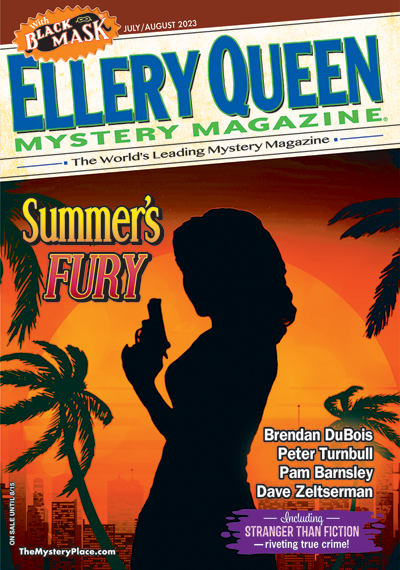
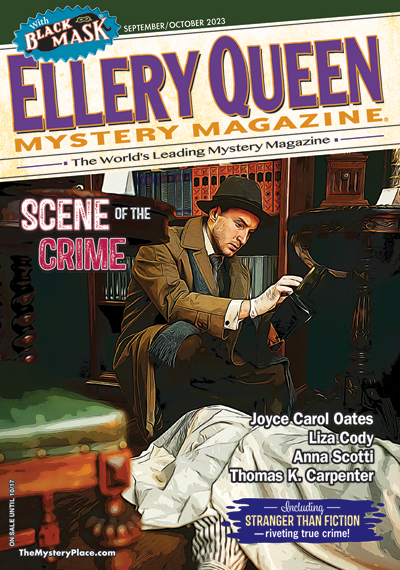
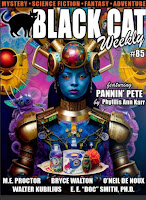

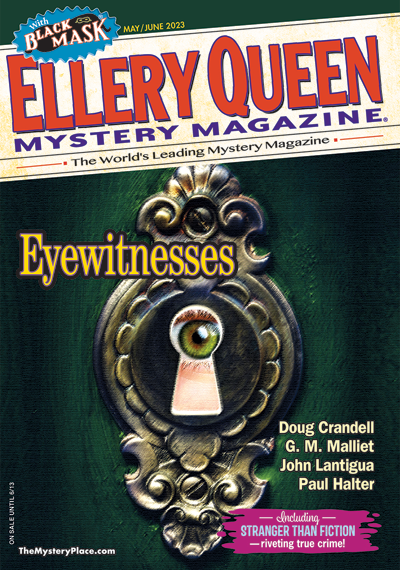
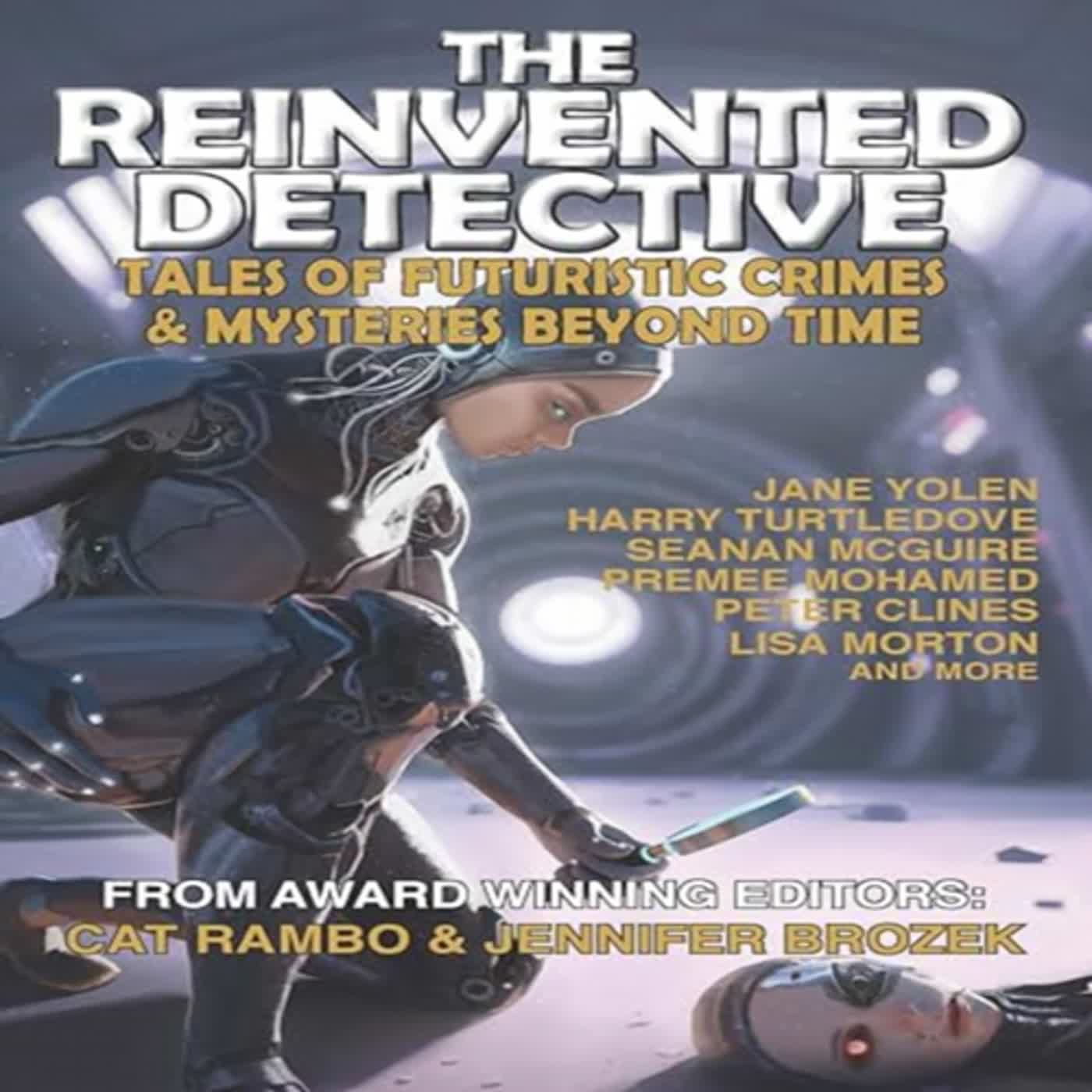
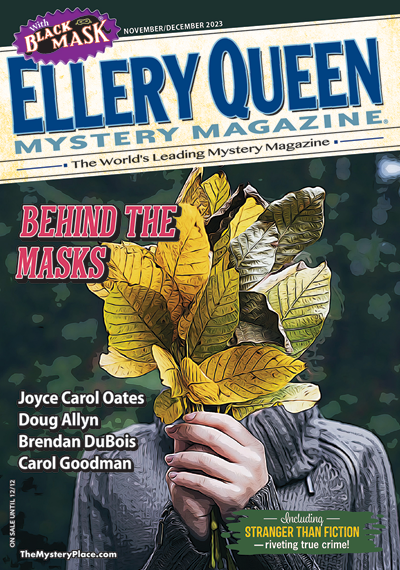
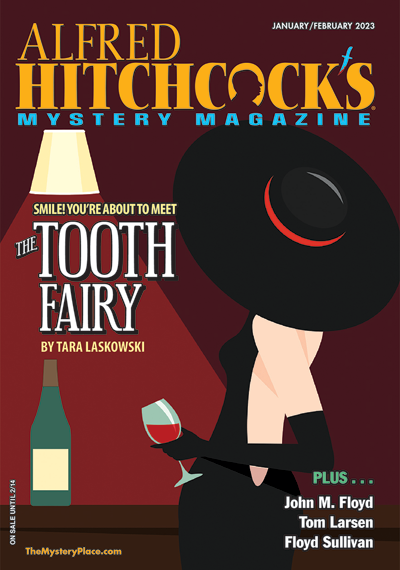


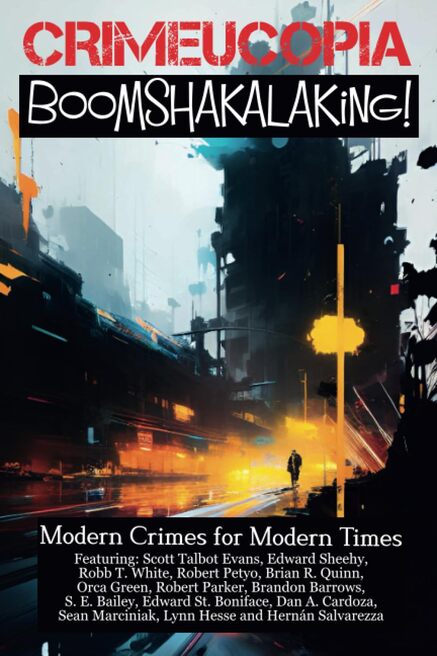

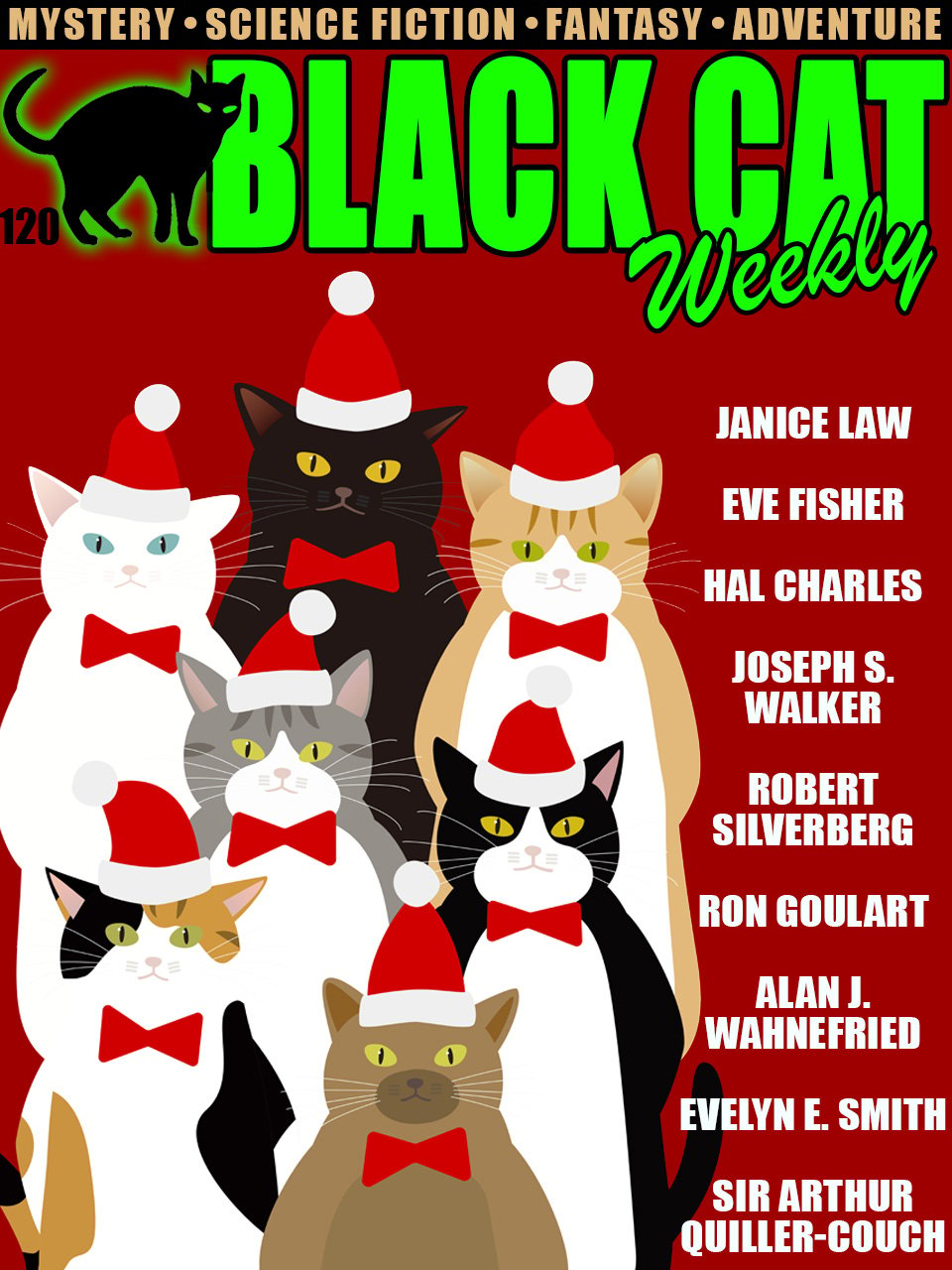








.jpg)

